Prevention
Wash Your Hands
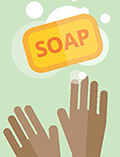
Illness-causing bacteria can survive on your hands. Wash your hands thoroughly with soap and water during these times:
- Before, during, and after preparing food
- Before eating food
- After using the toilet
- After changing diapers or cleaning up a child who has used the toilet
- After blowing your nose, coughing, or sneezing
- Before and after caring for someone who is sick
- Before and after treating a cut or wound
- After touching pets and other animals or their food or poop
- After touching garbage
Keep Certain Foods Separated
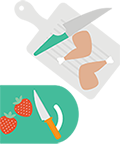
Keep raw poultry away from other foods. Use separate cutting boards and clean them properly.
- Use one cutting board for raw meat (including poultry, seafood, and beef)
- Use another cutting board for fresh fruits and vegetables, and other foods.
- Clean all cutting boards, countertops, and utensils with soap and hot water after preparing any type of raw meat.
Cook Food to the Right Temperature
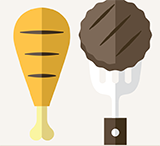
Be extra careful with poultry, one of the top causes of Campylobacter illnesses in the United States. Poultry includes chicken, turkey, duck, goose, and other farmed birds.
- All poultry and foods containing poultry, such as sausages and casseroles, should be cooked to reach a minimum internal temperature of 165°F.
- If you are served poultry that appears to be undercooked in a restaurant, send it back for further cooking.
Drink Pasteurized Milk
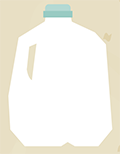
Raw milk can carry Campylobacter and other harmful germs that can make you very sick. The risk of getting sick from drinking raw milk is greater for:
- infants and young children
- adults aged 65 and older
- pregnant women
- people with weakened immune systems, such as people with the blood disorders thalassemia and hypogammaglobulinemia, AIDS, or people receiving chemotherapy.
Do Not Drink Untreated Water
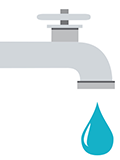
It is important to know where drinking water comes from, if it’s been treated to remove harmful germs, and if it’s safe to drink.
- Do not drink untreated water from a stream, river, pond, or lake.
- Be sure that wells are located a safe distance from possible sources of contamination, such as septic tanks, livestock, and manure.
- If you have a septic tank or well, have it inspected regularly to ensure that it is functioning properly.
- Page last reviewed: October 6, 2017
- Page last updated: October 6, 2017
- Content source:


 ShareCompartir
ShareCompartir